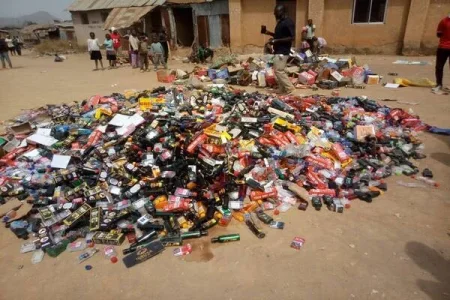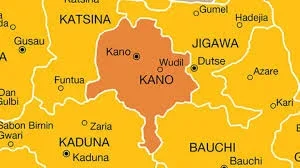
In a decisive move against what they perceive as a growing threat to their families, women in the Jos South Local Government Area of Plateau State have taken matters into their own hands. Reports from Daily Trust reveal that the women, predominantly from Sabon Bariki and Bukuru Low Cost areas of Gyel District, conducted a widespread campaign, seizing and destroying alcoholic drinks and related substances from shops across their communities.
The exercise, marked by a significant turnout of determined women, unfolded with the support of young girls, children, vigilantes, and other volunteers. Groups of women targeted shops and joints where these products are sold, aiming to eliminate what they believe is a major factor contributing to their husbands' perceived irresponsibility.
Shop owners, upon hearing about the women's campaign, took preventive measures by locking up their shops and disappearing. However, the women, undeterred by these precautions, vowed to return with even tougher measures to tackle the issue at its roots.
Remarkably, the community and traditional rulers reportedly approved of this unconventional campaign. The women focused their efforts primarily on locally produced alcoholic drinks and intoxicants, expressing concerns about their harmful effects and high concentration of chemicals.
A spokesperson for the women emphasized their grievances, stating, "These drinks are turning our men into irresponsible people. The drinks are weakening them, taking away their strengths, and making them useless." The women claimed that the youth in the community were also adversely affected, with the drinks rendering them incapable of engaging in productive activities, such as menial jobs or farming.
“Our husbands have also been weakened by the drinks, and they can no longer perform their conjugal duties in the night," lamented one woman. "Today, instead of having a man and a woman at home, we now have two women at home since our husbands cannot be called men any longer.”
However, not everyone in the community supports the women's initiative. A youth, in conversation with the publication, expressed skepticism about the effectiveness of the campaign. He revealed that the community's youth were resourceful in finding alternative sources for alcoholic drinks, even if the women destroyed the ones they encountered.
The youth proposed a different solution to the problem, suggesting that government empowerment programs could provide them with opportunities for alternative livelihoods, addressing the root causes of alcohol-related issues in the community.




